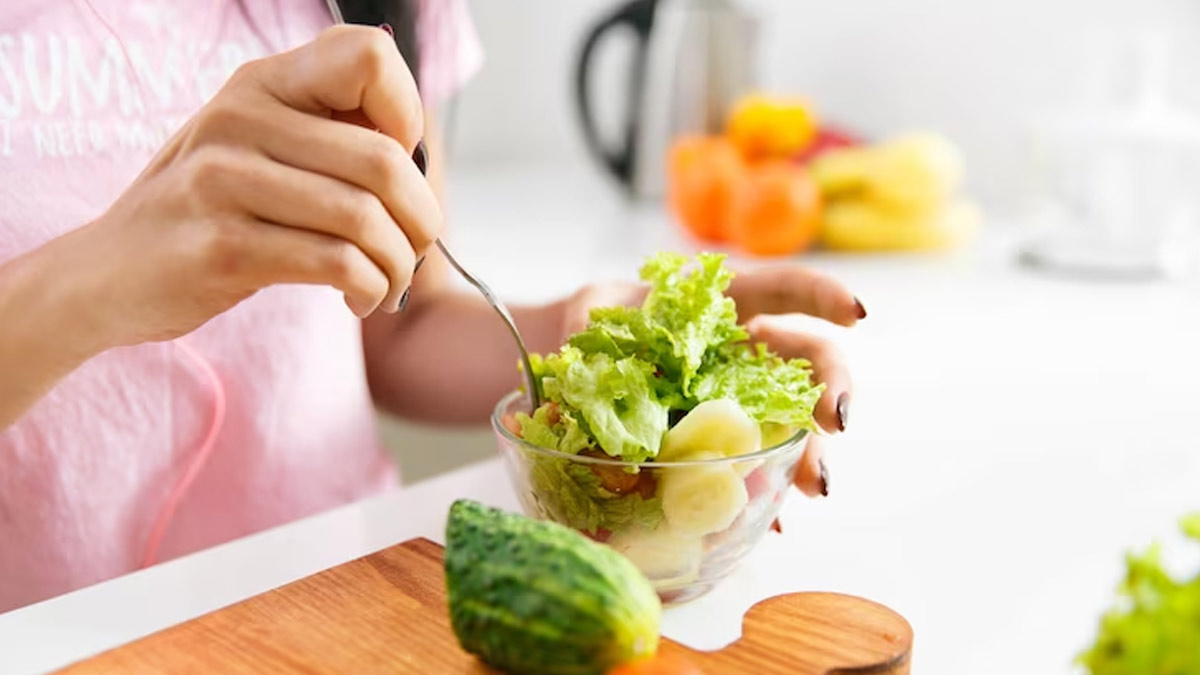
Polycystic Ovary Syndrome, commonly known as PCOS, is a hormonal disorder that affects women of reproductive age. It is characterised by the presence of multiple cysts on the ovaries, irregular periods, and hormonal imbalances that can lead to a host of symptoms such as weight gain, acne, hirsutism, and infertility. While PCOS cannot be cured, its symptoms can be managed through lifestyle changes, medication, and dietary modifications.
Table of Content:-
Food Items That Help Manage the PCOS Symptoms
In this article, we will explore some food items that can help manage the symptoms of PCOS.
1. Fibre-rich foods
Fibre is an essential nutrient that can help regulate blood sugar levels, which is crucial for women with PCOS who are at an increased risk of developing insulin resistance. Foods that are high in fibre include whole grains, fruits, vegetables, and legumes. These foods can also help promote feelings of fullness and prevent overeating, which can help with weight management.
Also read: 7 Symptoms That Say You Should Not Consume Alcohol

2. Lean protein
Lean protein sources such as chicken, fish, and tofu are important for women with PCOS as they can help regulate blood sugar levels and promote weight loss. Studies have shown that diets high in protein can help reduce insulin resistance and improve insulin sensitivity.
3. Anti-inflammatory foods
Inflammation is a common symptom of PCOS and can exacerbate other symptoms such as acne and hirsutism. Foods that are rich in anti-inflammatory properties can help alleviate inflammation and improve overall health. Examples of anti-inflammatory foods include fatty fish such as salmon, walnuts, turmeric, and leafy green vegetables.
4. Foods with a low glycemic index
Foods that have a low glycemic index (GI) are those that are digested and absorbed slowly, resulting in a slower rise in blood sugar levels. Foods with a high glycemic index, on the other hand, are digested quickly and can cause a rapid rise in blood sugar levels. Women with PCOS are at an increased risk of developing insulin resistance and should aim to consume foods with a low glycemic index to help regulate their blood sugar levels. Examples of foods with a low glycemic index include whole grains, legumes, fruits, and non-starchy vegetables.
5. Probiotic-rich foods
Probiotic-rich foods such as yoghurt, kefir, and fermented vegetables can help promote gut health and reduce inflammation. Studies have shown that women with PCOS have an altered gut microbiome and consuming probiotics can help improve gut health and alleviate symptoms such as acne and hirsutism.

Also read: 7 Symptoms That Say You Should Not Consume Alcohol
6. Foods rich in magnesium
Magnesium is an essential mineral that is involved in over 300 biochemical reactions in the body. Women with PCOS are at an increased risk of magnesium deficiency and should aim to consume foods rich in magnesium. Examples of magnesium-rich foods include spinach, almonds, avocado and dark chocolate.
7. Foods rich in vitamin D
Vitamin D is important for bone health, immune function and hormonal balance. Women with PCOS are at an increased risk of vitamin D deficiency and should aim to consume foods rich in vitamin D or take supplements if necessary. Examples of vitamin D-rich foods include fatty fish such as salmon, egg yolks, and fortified dairy products.
PCOS is a hormonal disorder that affects women of reproductive age and can lead to a host of symptoms such as weight gain, acne, hirsutism, and infertility. While PCOS cannot be cured, its symptoms can be managed through lifestyle changes, medication, and dietary modifications. Foods that can help manage the symptoms of PCOS include fibre-rich foods, lean protein, anti-inflammatory foods, foods with a low glycemic index, probiotic-rich foods, foods rich in magnesium, and foods rich in vitamin D. By incorporating these foods into your diet, you can manage your symptoms of PCOS.
Also watch this video
How we keep this article up to date:
We work with experts and keep a close eye on the latest in health and wellness. Whenever there is a new research or helpful information, we update our articles with accurate and useful advice.
Current Version